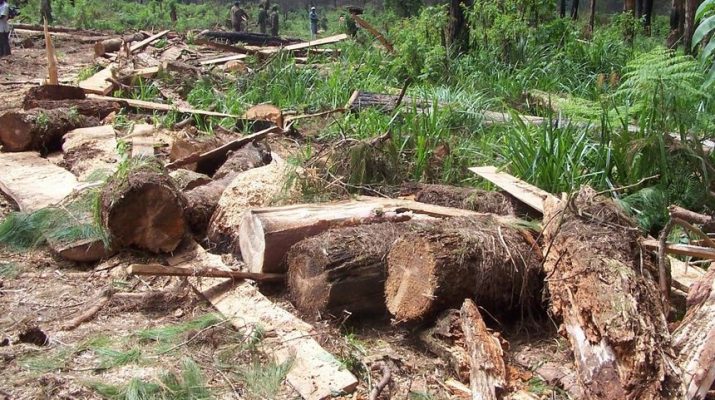Mount Kenya is under “grave threat” from logging, poaching and wilful ignorance by the younger generation, elders have said. They said the threats Kenya’s iconic peak faces could soon lead to a national catastrophe. “People have been told, but they have not listened. They do not accept knowledge given by their parents,” Anna Wamugo, a 77-year-old farmer said. She is among elders who will meet with the UN Mountain Partnership Ambassador, His Holiness The Drikung Lhundup today.
Lhundup jetted into the country on Sunday and will visit until November 1. He is a Tibetan Buddhist monk and the 37th throne holder of the Drikung Kagyu lineage of Tibetan Buddhism. Lhundup will be a guest of the Mount Kenya Trust.
Wamugo said people just do the things they want. “If someone wants to cut a tree, they just go and cut it without caring what effect that will have,” she said.
Unplanned development, illegal logging, poaching and bhang cultivation are sweeping the slopes of the 5,199m mountain.
The activities risk the collapse of its fragile ecosystem, despite it providing almost all of Nairobi’s water and half of Kenya’s electricity.
Elders living near Mount Kenya say they have repeatedly warned of impending disasters because of immense damage to forests and rivers, mostly through deforestation. The mountain is treated as a god who provides benefits in return for respect. Bedan Mbogo, 80, he was banned from the forests as a child, when he was told wildlife there belonged to Murungu, the mountain god.
“If you ate game meat, you were punished by being denied milk until you made a sacrifice,” he said.
“Young people those days were careful. Now people just take what they want. Murungu is very annoyed, and that is why there is evil in our country.”
Lhundup is scheduled to visit communities living on the mountain, see the Trust’s work and meet its staff and senior officials from the Kenya Wildlife Service and Kenya Forest Service. Mount Kenya Trust Field coordinator Humphrey Munene says trees act like a giant sponge for rainfall.
“When it rains, they soak up the water, hold it, then release it slowly into the rivers that downstream power our hydroelectric dams and come out of almost every tap in Nairobi. Without trees, the rain runs off and disappears in a rush, often in floods,”he says. Mount Kenya Trust and partners have planted more than half a million trees around Mount Kenya, turned 350 hectares back to indigenous forest, launched tree nurseries nurturing 100,000 tree seedlings, and helping 50,000 people with health care and 2,000 children understand conservation better. Munene says the work has to be extended as the iconic and vital ecosystem that sits at the heart of the country is still under serious threat.

